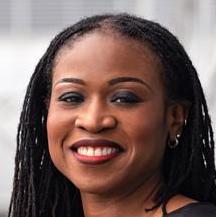
Representatives from a network of women deans, chairs, and distinguished faculty in biomedical engineering are calling upon the National Institutes of Health and other funding agencies to address disparities in allocating support to Black researchers. The large group of scholars – including lead author Kelly Stevens, an assistant professor of bioengineering at the University of Washington, and senior author Omalola Eniola-Adefeso, a professor of chemical engineering at the University of Michigan – published their views in a paper published in the journal Cell.
According to studies of National Institutes of Health research funding allocations, Black applicant award rates have stood at about 55 percent of that of white principal investigators of similar academic achievement. Despite internal reviews of the reasons behind this disparity, and promises to do better, the funding gap has continued.
Many universities review faculty members’ ability to support their research as part of decisions on tenure and promotions. In this way, NIH and other agencies’ funding disparities can jeopardize the careers of Black scientists. Without adequate research funding, these scientists can become discouraged and leave their professions, according to the authors.
The authors recommend:
- Explicitly state that racism persists in the U.S. research and must be expelled.
- Institute policies to immediately achieve racial funding equity.
- Make diversity score-driving criteria, prioritize diverse teams for funding, and diversify review panels.
- Train and empower NIH leadership, staff, and grant reviewers and recipients to recognize and stop racism.
The authors concluded by making a plea for support: “Scientific colleagues, let us each use our voices and actions to now overcome our profession’s racism and serve as antiracist agents of change.”












What I find very interesting and even borderline suspect is that Eniola-Adefeso and the majority of the other co-signers are either “African or Caribbean Immigrants”. Yet, many of the same African-Caribbean Immigrants have been literally silent when “native born Black Americans” were being mistreated at the NIH and any other governmental, academia, or private sector industry. Now, suddenly they want to “beat their chest about being Black” because they’re being treated as second class citizens. Really. Talk about false solidarity.
Michael,
You seem to be unfriendly to Caribbean and African immigrants. Why do the other immigrant groups escape your attention?
Just so you know, the United States has a foreign born population of at least 45 million. Some believe the true number exceeds 50 million.
Only about 10% of this population is from the Caribbean. Another 5% is from Africa. The largest groups of foreigners are from Latin America (about 40%) and Asia (about 30%). Most of the rest are from Canada, Europe, and the Middle East.
Why pick on the smallest groups? Besides, Caribbean and African immigrants are much closer in culture and lived experience to African Americans than the others. What’s going on here?
Your analysis is totally misguided and inaccurate on numerous levels. Further, you need to recognize that simply because I Do Not blindly support “African and Caribbean Immigrants” Does Not qualify as being “unfriendly”. Its called intelligence of the highest order. In fact Ewart, the only time “African and Caribbean Immigrants” even remotely partner with “native born Black Americans” is when White American racism mistreat them at work, school, or by the police. All the while, these same “African and Carribbean Immigrants” are too busy smiling while nestled in those proverbial “White Spaces”.
Please spare me with the “cultural closeness” narrative because most Africans on the continent can not even get along with Africans from neighboring countries(look at what’s taking place in Ethiopia right now). The same applies for the Caribbean, Central, and South America as well. Let’s be clear Ewart, “African and Caribbean Immigrants” do not come the USA to establish alliances with Black Americans. In fact, most these people situate themselves amongst their own. The only time “African and Caribbean Immigrants” is when they’re trying to sell Black Americans some second rate products via vending. In other words, “what’s going here” is that the “native born Black American” community are fully aware that “we have no permanent friends” and self-preservation is the order of the day.
I have no idea where either of you live, but the most heinous backstabbing and rejection a friend of mine from the Caribbean have experienced came from “native-born black Americans.” Africans in America by the way think ALL other black folks are stupid. Native-born African Americans are so disconnected from their native culture that they are unable to form any significant alliance, and Latin American blacks want no part of any other group. And that is the truth.
Re: Teresa;
I live in place called the USA. For starters Teresa, Native born Black Americans are more attuned in their cultural identity as compared to those hailing from the Third World African and Caribbean countries. In fact, that vast majority of African and Caribbean immigrants come “My USA” with a colonial subjects racist worldview. I would suggest that for the African and Caribbean immigrants who don’t like Native born Black Americans they’re more than welcomed to return to those early 19th century countries. In other words, African and Caribbean immigrants in the USA are in no position to speak on anything the Native born Black American community. Last, it appears to me that somebody has consumed entirely too much jollof rice and jerk chicken.
Michael: Thank you for enlightening Mr. Archer. Hopefully he can grasp what you were trying to convey to him which didn’t have one thing to do with being unfriendly.
Its true that most times these African immigrants and Afro-Caribbean’s don’t see the need to bond with African Americans on any level unless they are confronted with James Crow II and structural barriers to their own advancement.
Hey Ronald,
You’re absolutely welcome. The totality of Ewart’s dimwitted comments is indicative of his own miseducation along with many of his minions and ilk. We have to keep in mind that for those hailing from the African continent and Caraibbean still function and operate under the guise of 21st European colonialsim(now called neoliberlism) which significantly impact many of such persons to even remotely empathize what native born Black Americans have been enduring for the past 500 years.
Ronald Saunders,
Across the professions — and notably in medicine, law and accounting — a high percentage of African American candidates struggle to pass their certification exams.
That is the main problem you face.
We can agree that various forms of “racism” have direct or indirect effects on classroom performance, but it is also true that too many African Americans take the easy route of blaming others for their problems, and put too little effort into self-improvement.
ewart (the lower case “e” is intentional),
Once again, your woefully misguided comments clearly show that you have an acute case case of Stockholm Syndrome of the highest order. I certainly hope you know that you’re a supporter of eugenics in the 21st century. Sad.